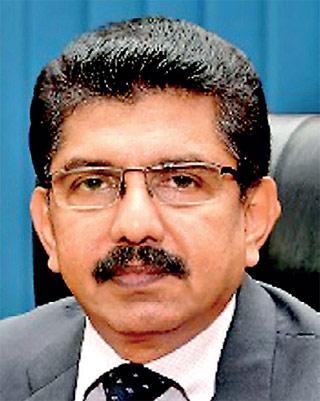Reply To:
Name - Reply Comment
 Being the Secretary to the Ministry of Environment and the national focal point of the Montreal Protocol on substances that depletes the ozone layer, I am pleased to extend my greetings on World Ozone Day, 16 September. The world community celebrate Ozone Day under the theme of "The Montreal Protocol: Keeps Us, Our Food and Vaccines Cool". The objective of this Ozone Day is to inspire the world community to develop more energy efficient, climate friendly, and cost-effective cooling solutions. This will ensure that the products such as food, medicine and vaccines are delivered safely and in good condition for human consumption. Furthermore, it is our duty to work towards achieving these goals even in the face of the Covid-19 pandemic.
Being the Secretary to the Ministry of Environment and the national focal point of the Montreal Protocol on substances that depletes the ozone layer, I am pleased to extend my greetings on World Ozone Day, 16 September. The world community celebrate Ozone Day under the theme of "The Montreal Protocol: Keeps Us, Our Food and Vaccines Cool". The objective of this Ozone Day is to inspire the world community to develop more energy efficient, climate friendly, and cost-effective cooling solutions. This will ensure that the products such as food, medicine and vaccines are delivered safely and in good condition for human consumption. Furthermore, it is our duty to work towards achieving these goals even in the face of the Covid-19 pandemic.
The National Ozone Unit of the Ministry of Environment implements various programs to eliminate the use of hydrochlorofluorocarbons (HCFCs). Under these programs, nine Refrigerant Recovery and Reclaiming Centres have been set up covering 9 provinces to clean the contaminated refrigerants. Trainings of technicians and technical college students are being conducted island wide to adopt eco-friendly service practices in the field of refrigeration and air conditioning. We have also been successful in introducing conversion technology of eco-friendly refrigerant in to currently used HCFC based refrigerators and air conditioners, to the syllabus of technical colleges.
Incentives will be provided to the government institutions to replace air conditioners working on HCFC-based refrigerants with the purchase of air conditioners working on environmentally friendly refrigerants. We are also implementing special programs in collaboration with the Customs Department to prevent illegal imports of refrigerants and their circulation in the country. In addition, a special system for issuing licenses electronically is being developed in collaboration with the Department of Import and Export Control to regulate the import of refrigerants in Sri Lanka. Further, necessary steps have been taken to ban the production of refrigerators and air conditioners working on HCFC locally and have restricted imports.
A Country Assessment report has also been prepared on the use of hydrofluorocarbon (HFC) grade refrigerants in the field of refrigeration and air conditioning in Sri Lanka with the technical support of the University of Moratuwa. It is expected to develop plans to minimize the use of hydrofluorocarbon (HFC) grade refrigerants in order to reduce global warming. Further, essential safety measures are being introduced and standards are being developed for refrigerants such as hydrocarbons (HC), ammonia (NH3) and carbon dioxide (CO2), which are expected to come to the market in the near future, replacing HFC grade refrigerants.
National Cooling Action Plan has been formulated with the objective to improve the energy efficiency and the use of renewable energy sources in our country. It will further strengthen the regulatory framework and will encourage to achieve the energy targets pertain to the cooling sector.
I would like to convey my heartfelt gratitude to the United Nations Development Program (UNDP), the United Nations Environment Program (UNEP) and all Government and Non-Governmental Organizations for their continued support to the Ministry in the implementation of the Montreal Protocol in Sri Lanka.
I would also like to extend my congratulations to the Vienna Convention and the Montreal Protocol, which have been moving forward successfully over the past 34 years with a number of significant environmental achievements.
Dr. Anil Jasinghe
Secretary, Ministry of Environment